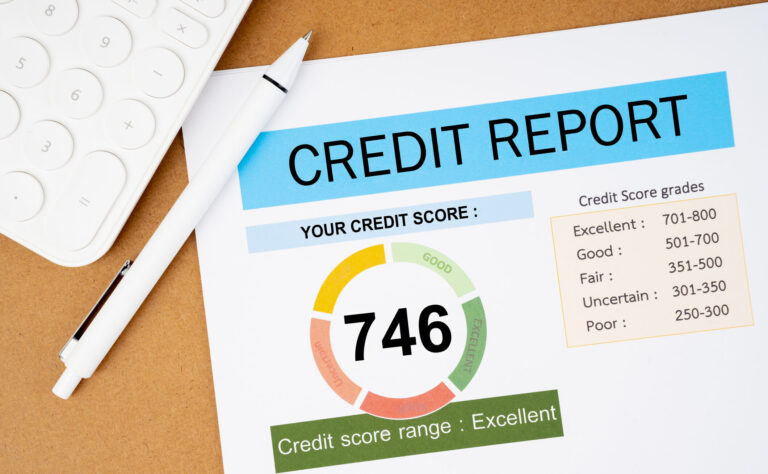Key takeaways
- Missing payments, maxing out your credit card and ignoring errors in your credit reports can all impact your credit score negatively.
- To maintain a good score, consider monitoring your credit report and staying ahead of bills.
When people think about credit scores, they often focus on getting approved for a mortgage or a car loan. But your score can affect much more than your ability to borrow money. It can influence your car insurance rates,the terms of your cell phone plan, and even offer a leg up on a job application. A good score doesn’t just help you qualify for credit. It can make everyday life more affordable and less stressful.
That’s why it’s important to avoid some of the common mistakes that can drag your credit score down. Here’s a breakdown of the habits that may quietly hurt your credit and what you can do instead.
1. Missing or Late Payments
Your payment history is the most important factor in your credit score. Even a single late payment, once it’s reported 30 days past due, can damage your score. Credit scoring models treat it as a warning sign that points to neglect or financial hardship.
To avoid this, consider setting up automatic payments for at least the minimum amount due. If you miss a payment by mistake, pay it as soon as possible. In some cases, you may ask the issuer to waive the late fee as a courtesy, though they’re not required to.
Missing a credit card payment is bad enough, but missing a mortgage payment can be worse. Mortgage delinquencies raise more red flags with lenders and may lead to a bigger drop in your score.
No matter what type of bill it is, a delinquency that’s reported to the credit bureaus can stay on your credit report for up to seven years. The later the payment, the more it can hurt, especially if it reaches 60 or 90 days past due.
2. Maxing out credit limits
Carrying a high balance compared to your credit limit can hurt your score even if you pay on time. This is known as your credit utilization ratio, and it accounts for a large chunk of your score. Lenders view your high utilization ratio as a warning sign that you might be living beyond your means.
In general, try to keep your utilization ratio under 30%. Staying below 10% is even better if possible. You may also spread purchases across different cards or make more than one payment during the billing cycle instead of waiting until the due date.
3. Closing old credit accounts
It may seem smart to close a credit card you’re no longer using, especially if it has an annual fee. But if that account is one of your oldest, closing it could shrink the average age of your credit history, which is another factor in your score.
That older card might also have a high credit limit that’s helping to keep your utilization ratio down. Once it’s gone, your total available credit drops, which can increase your utilization even if your spending stays the same.
Instead of canceling the card outright, consider downgrading it to a version without an annual fee. That way, you can preserve the age of the account and the available credit you have without paying for a product you no longer use.
4. Ignoring possible errors in your credit reports
When mistakes happen, they can wreak havoc on your credit score. A wrongly reported late payment or an account that doesn’t belong to you could shave off dozens of points from your score. And the worst part is you might never know unless you’re checking your reports.
Fortunately, monitoring your credit is easier than ever. You’re entitled to a free report once a year from each of the three major credit bureaus, Equifax, Experian and TransUnion through AnnualCreditReport.com. That means you can space them out and check one every four months.
If you find an error, don’t wait. Contact the credit bureau that shows the error and file a dispute along with any supporting documents you can provide.
5. Carrying unpaid debts to collections
Few things can damage your credit like a collection account. A bill that ends up with a collection agency may be reported to the credit bureaus, which could create a derogatory mark or negative item to appear on your credit report. These marks can stick around for up to seven years and have a serious impact on your score.
Having a derogatory mark on your report can make it more difficult to qualify for new loans or may mean having to pay higher interest rates when you did borrow money, because a lender may consider you a higher risk. The impact of the negative item on your report may vary based on the amount of debt in collections and the type of debt.
When it comes to unpaid bills, it is best to act early, before the debt reaches collections. If you’ve already received a notice from a collection agency, try to negotiate a payment plan or a settlement. Just make sure to get the agreement in writing before sending any payment.
6. The dangers of co-signing
Co-signing a loan might seem like you’re just helping someone get approved. But from the lender’s perspective, you’re not a backup – you’re a full borrower. That loan becomes your responsibility the moment you sign, and any missed payment lands on your credit report just as if you skipped it yourself.
If the borrower falls behind or defaults, your score can drop, and collection calls may come your way. Even if they make every payment on time, the loan still shows up on your credit report and counts against your utilization ratio. That could hurt your chances of getting a mortgage, a car loan or even a credit card in the future.
Before you co-sign, ask yourself this: If they stop paying tomorrow, could you cover the bill without wrecking your own finances? If the answer is no, you may want to reconsider providing your signature.
Conclusion
A good credit score can open a lot of doors. It can help you land a better job and qualify for things like a mortgage or car loan. But keeping your score in shape takes some attention and healthy habits. Paying bills on time, keeping balances low, checking your reports and thinking carefully about financial moves like co-signing a loan can all make a big difference.
It’s easy to slip up, especially if credit isn’t something you think about often. The good news is that once you know the potential pitfalls, they’re usually easy to avoid. A few smart moves now can make your financial life a lot easier down the road.



